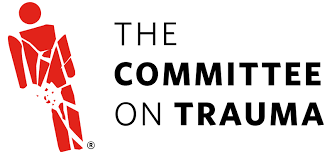

Proceedings from the first-ever Medical Summit on Firearm Injury Prevention have been released and published on the Journal of the American College of Surgeons website as an article in press in advance of print publication.
Leaders from the 43 national medical organizations and the American Bar Association attended the historic meeting on February 10-11 in Chicago, which was hosted by the American College of Surgeons Committee on Trauma (ACS COT). Organizations represented lawyers, physicians, nurses, public health professionals, and emergency medical service providers, with attendees providing perspectives from the front lines of caring for seriously injured patients as well as dealing with the aftermath of violence in communities.

The first coauthor on the proceedings is Chair of the ACS Committee on Trauma and Harborview Injury Prevention and Research Center core member Eileen Bulger, M.D., FACS. Core member Fred Rivara, M.D., MPH, also attended the summit and is one of the coauthors of the proceedings.
“Despite the fact that many organizations have been leading efforts for years to address the dire consequences of firearm violence, a national collaborative effort led by the medical profession as a whole has yet to take flight,” said Bulger, Summit moderator and professor of surgery, University of Washington, Seattle. “And yet—while the medical community has successfully worked together to reduce death rates from traffic injuries, HIV, and cancer—U.S. death rates from firearm violence have risen. The precedent is already there: by taking a public health approach to addressing this problem, we can work more effectively as a whole to reduce death, disability, and injury from firearms.”
“We’ve reached a point where tens of thousands of Americans are seriously injured, permanently disabled, or die annually from firearm incidents,” said David B. Hoyt, MD, FACS, ACS Executive Director. “By working together with other stakeholder organizations seeking to remedy this crisis, we can collectively find and put forth viable solutions to this epidemic that continues to inflict tragedy on Americans’ lives.”
Throughout the Summit, attendees expressed their compelling interest in reducing deaths, injuries, and disabilities from firearms in the U.S. The collegial environment of the meeting set the scene for fostering an inclusive dialogue on how to work together to identify opportunities for the medical community to reach a consensus-based, apolitical approach to firearm injury prevention focused on understanding and addressing the root causes of firearm violence while making firearm ownership as safe as possible.
Summit attendees identified opportunities to collaborate in the areas of research, education, and targeted injury prevention initiatives. Using a public health framework, attendees engaged in collegial discussions to build consensus on actionable items for firearm injury prevention that the group could support as a unified voice.
Following the meeting, consensus statements were compiled by the planning committee and brought to the attention of attendees for further internal consideration by their organizations.
The just-released Summit proceedings article identifies a comprehensive public health approach to addressing this problem that 42 of the participating organizations have formally agreed to support and provides a road map that can be implemented through collaboration among medical, legal, and community organizations.
Briefly summarized below, these consensus-based points for potential action address the need to:
“A key driver for this movement is to take a systems-based approach toward addressing the problem and base it on the public health model,” explained Ronald M. Stewart, MD, FACS, article coauthor, who is Medical Director of ACS Trauma Programs. “This approach involves not only engaging firearms owners as part of the solution—not the problem—but also engaging people who live in communities at risk as part of the solution, and not the problem. We must identify our society’s structural factors and social determinants that create or perpetuate the cycle of firearm violence and call for a commitment for research funding that matches the burden of this disease in America.”
As the authors write, “coming together as a professional community and approaching this epidemic as a disease and a public health problem promises to make our neighborhoods and our country safer, stronger, and more resilient. We believe this can be done in a manner which preserves (or even enhances) freedom. This professional approach requires freedom with responsibility.”
In addition to Dr. Bulger and Dr. Stewart, other article coauthors are Deborah A. Kuhls, M.D., FACS; Brendan T. Campbell, M.D., FACS; Stephanie Bonne, M.D., FACS; Rebecca M. Cunningham, M.D., FACEP; Marian Betz, M.D., FACEP; Rochelle Dicker, M.D., FACS; Megan L. Ranney, M.D., MPH, FACEP; Chris Barsotti, M.D., FACEP; Stephen Hargarten, M.D., FACEP; Joseph V. Sakran, M.D., MPH, FACS; Frederick P. Rivara, M.D., MPH, FAAP; Thea James, M.D., FACEP; Dorian Lamis, Ph.D.; Gary Timmerman, M.D., FACS; Selwyn O. Rogers, M.D., FACS; and Bechara Choucair, M.D.
The above is a lightly modified version of a press release from the American College of Surgeons, May 20, 2019